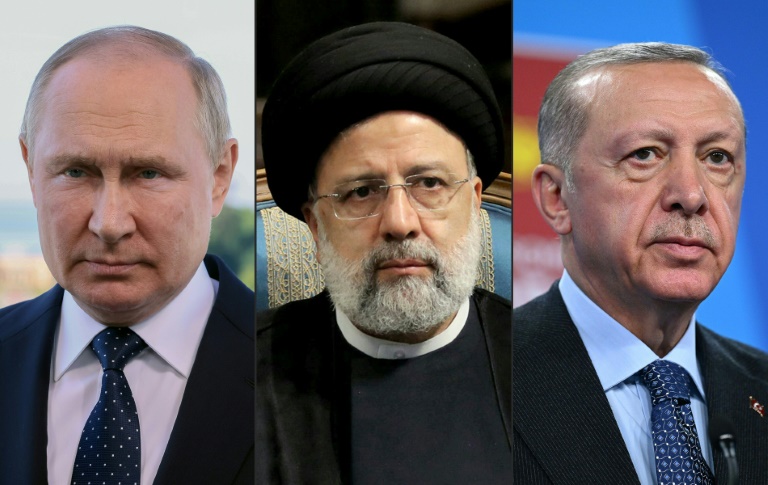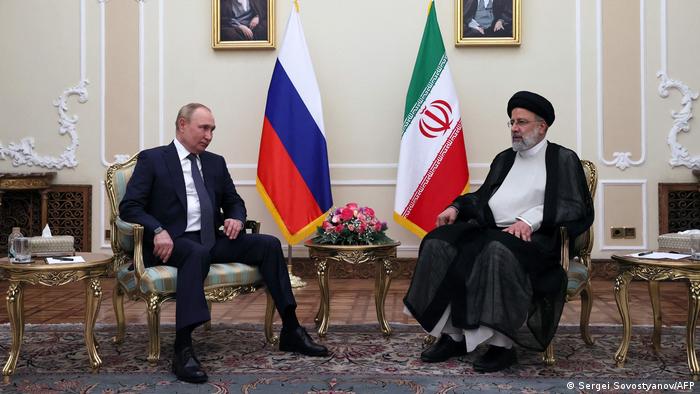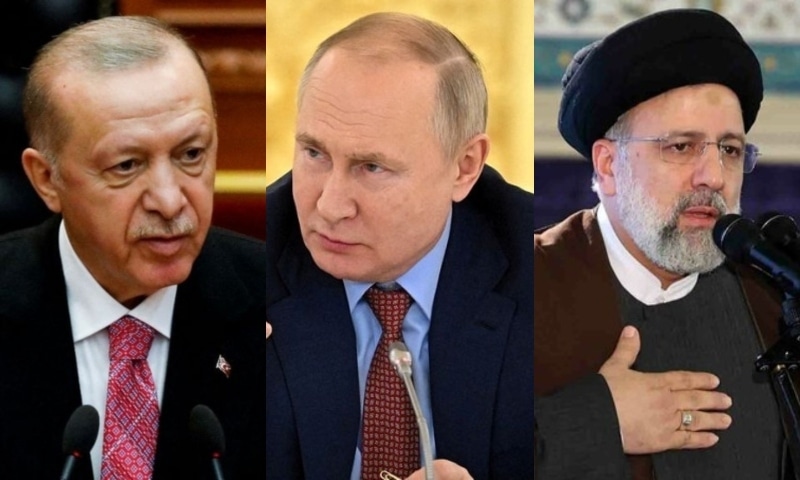Russian President Vladimir Putin stayed in Iran on Tuesday to maintain the relationship with his Turkish and Iranian companions. Yet the visit received significant international awareness for its timing, coming on the heels of US President Joe Biden’s Middle East trip, making Putin’s visit glance like “a punch back” behind the US endeavours to maintain his impact in this area.

Russian President Putin on Tuesday encountered Iranian President Ebrahim Raisi and Turkish President Recep Tayyip Erdogan individually before a threefold summit, his second foreign visit since the Russian special military functions in Ukraine.
Putin and Raisi discussed methods for the development of bilateral connections in different regions, including energy, transit, trade exchanges and regional products.
Kremlin subordinate Yury Ushakov called Tehran an essential fellow of Moscow because connections between the countries are familiar, have a lengthy history, and are growing very actually in an expansive range of sizes.
Putin’s bilateral discussion with Erdogan is hoped to touch on the problem of Ukrainian cereal exports from the Black Sea ports.
Biden stated earlier in front of six Gulf nations, Egypt, Jordan and Iraq, that Washington will remain an enthusiastic, dynamic partner in the Middle East, and the US will not walk away and depart an emptiness to be filled by Moscow, Tehran or Beijing.
Over the past few years, from negotiations to select a protector location at the Turkey-Syria boundary to creating relationships with Saudi Arabia and the United Arab Emirates (UAE) in terms of power, fuel and the military, as well as the deepening cooperation with Iran, Russia has demonstrated valuable connections with provincial nations and guaranteed its presence, according to specialists. 
It is difficult to bound Russia out of this area, not only because Russia has a substantial existence there but also because it communicates strong energy ties with regional countries.
The US power in the Middle East has been falling in front of the significant differences in the international situation, and major regional countries, including Turkey, Iran and Saudi Arabia, have more robust autonomy and make foreign policy more independently, said the expert.
The three leaders of the state will discuss steps to destroy the cradle of international terrorism in Syria, reduce the inter-Syrian peace process and find answers to humanitarian cases, including post-conflict reconstruction. Putin, Raisi and Erdogan will give a joint statement after the negotiations, media reported.
For bilateral issues, viewers said the Iran nuclear agreement is on the agenda, yet significant improvement can hardly be completed on this occasion.
They were remarking on the Putin-Erdogan discussion, which will concentrate on food security. Food safety was also one of the main topics of the phone discussion between Putin and Erdogan last week. The Turkish leader told at the moment that “it was duration for the United Nations to take step for the plan regarding the appearance of protected passageways via the Black Sea.”

